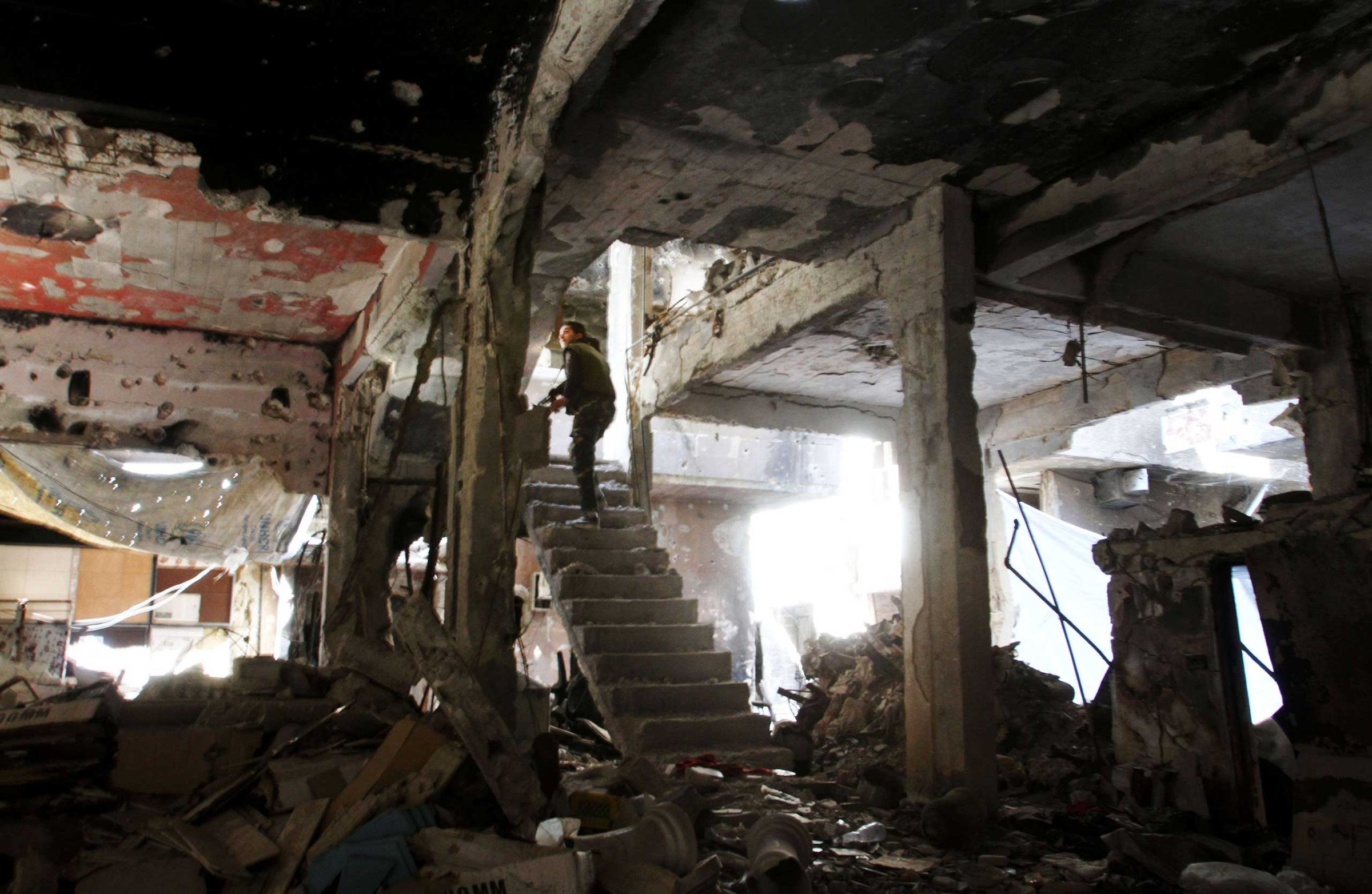
Syria’s Palestinian factions met Wednesday in an attempt to form a united front to fight the Islamic State of Iraq and Greater Syria (ISIS), whose fighters now control most of the Yarmouk refugee camp on the edge of Damascus. One week after ISIS fought their way into Yarmouk, thousands of civilians remain trapped inside.
“There is consensus to fight ISIS among Palestinians,” says Farouk al-Rifai, a spokesman for the Palestinian Civil Society Network in Syria who is currently in Damascus, “but disagreement about cooperating with the criminal regime,” referring to the government of Bashar al-Assad.
Palestinian fighters were taken by surprise last Wednesday when ISIS militants appeared in the camp after being allowed in by fighters from al-Qaeda-linked Nusra Front. Since then they have been battling ISIS in the rubble-filled streets of this once crowded and vibrant Palestinian neighbourhood.
“This was already a place where women were dying in childbirth because of lack of medicine and children were dying of malnutrition,” says Chris Gunness, a spokesperson for UNRWA, the United Nations agency responsible for Palestinian refugees. “We’ve just got reports of terrified people holed up in their houses with intesnse street fighting raging outside.”
And on top of the street fighting, residents inside say the regime continues to strike the camp.
“The situation now is dire because the regime is striking using barrels (bombs) and targeting civilians,” said Abu Abdallah, who is still inside Yarmouk but didn’t want to use his real name. “The worst part is the regime does not discriminate between civilians and fighters.”
An estimated 18,000 people remain in the camp, once home to around 180,000 mostly Palestinian residents. At least 3,500 of those who remain are children, according to aid workers. Yarmouk has already been under siege for more than two years and people have literally starved to death inside the camp. The siege and on-going clashes among regime troops and rebel forces have made delivering aid and supplies almost impossible at times. Gunness say his organization has had no access to the camp since the latest round of fighting broke out April 1.
“We need a pause [in the fighting] and humanitarian access so we can get aid to the civilians that need it,” says Gunness.
The U.N., aid organizations and activists are calling for an immediate end to hostilities in Yarmouk and for the protection of the civilians, but inside the camp there are now confused battle lines and shifting alliances among militias.
The Palestinians say they had an agreement with the Nusra Front, who control several checkpoints into Yarmouk, to keep calm and maintain security in the camp. Instead, the Nusra Front stopped Palestinian allies from entering the camp and welcomed ISIS.
This marked an unusual alliance between ISIS and Nusra, two of the most powerful armed forces in Syria. Since ISIS emerged in Syria, it has competed with the Nusra Front, al-Qaeda’s affiliate in the country. If the cooperation in Yarmouk was replicated in other parts of Syria, ISIS and Nusra would become a much stronger force.
“This is a localized thing,” says Salman Shaikh, director of the Brookings Doha Center, “but it may be a harbinger of things to come elsewhere in Syria.”
Now, its hard to see which international powers have the ability to appeal to the numerous factions warring in and around the camp — some allied with opposition rebels, some with al-Qaeda and others with Assad or ISIS.
“It begs the question, ‘who can stop this?’ I suspect we have very little leverage,” says Shaikh. “If we’re not careful we will be recounting the story of Yarmouk for years to come.”
When Syrians first rose-up against the regime of Assad in 2011, Palestinians tried to remain neutral. For decades Palestinian refugees in Syria co-existed with the government, which supported some of their political factions, but by Dec. 2012 Yarmouk was the site of heavy fighting between forces allied with the regime and those against it.
Now, mostly destroyed, Yarmouk has become a microcosm of the increasingly complex battlefield and shifting alliances in the four-year civil war. What were once clear sides for and against the regime, are increasingly complicated by new fronts against the Islamist groups and infighting among rebel forces who try to maintain what little they hold.
“Alliances are constantly shifting. This is a very bad cocktail of groups and interests,” says Shaikh, pointing out that the increasingly unpredictable situation shows there will be no military solution to the Syrian conflict. While the various fighters may be switching sides and setting new precedents for the wider Syrian conflict, Gunness points out that all have outside supporters.
“All the parties on the the ground in Syria have backers. They are all clients of somebody. Somebody buys their guns or buys their knifes or supports them,” says Gunness. “Those with political or diplomatic, financial or economic, religious or spiritual influence needs to bring that influence to bear so civilian life can be spared.”
Meet the Kurdish Women Taking the Battle to ISIS
![kurdish-women-fighters-syria-isis-newsha-tavakolian-09 18-year-old YPJ fighter Torin Khairegi: “We live ina world where women are dominated by men.We are here to take control of our future..I injured an ISIS jihadi in Kobane. When he was wounded, all his friends left him behind and ran away. Later I went there and buried his body. I now feel that I am very powerful and can defend my home, my friends, my country, and myself. Many of us have been matryred and I see no path other than the continuation of their path." Newsha Tavakolian for TIME Zinar base, Syria "I joined YPJ about seven months ago, because I was looking for something meaningful in my life and my leader [ Abdullah Ocalan] showed me the way and my role in the society. We live in a world where women are dominated by men. We are here to take control of our own future. We are not merely fighting with arms; we fight with our thoughts. Ocalan's ideology is always in our hearts and minds and it is with his thought that we become so empowered that we can even become better soldiers than men. When I am at the frontline, the thought of all the cruelty and injustice against women enrages me so much that I become extra-powerful in combat. I injured an ISIS jihadi in Kobane. When he was wounded, all his friends left him behind and ran away. Later I went there and buried his body. I now feel that I am very powerful and can defend my home, my friends, my country, and myself. Many of us have been matryred and I see no path other than the continuation of their path."](https://api.time.com/wp-content/uploads/2015/04/kurdish-women-fighters-syria-isis-newsha-tavakolian-09.jpg?quality=75&w=2400)
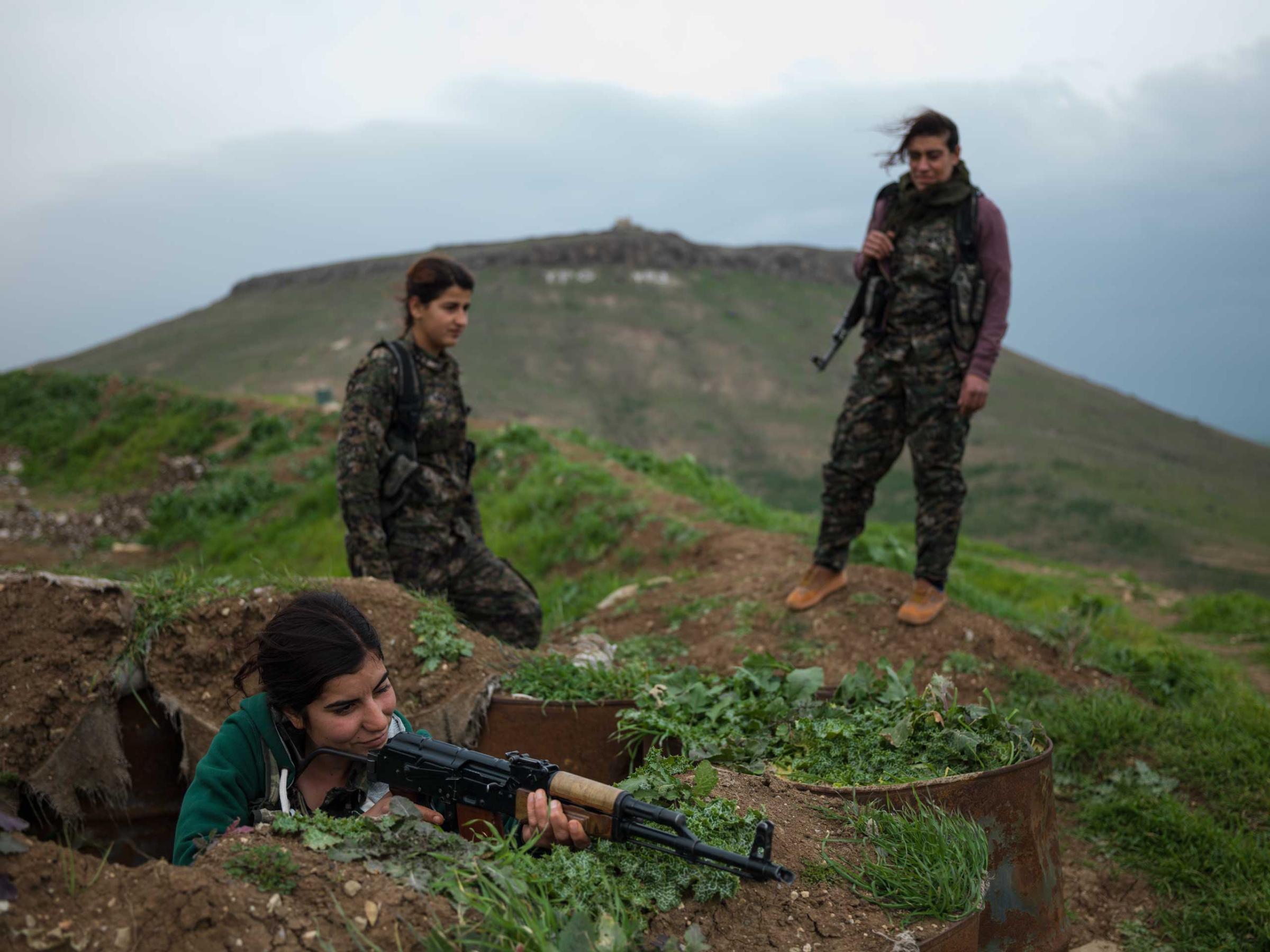
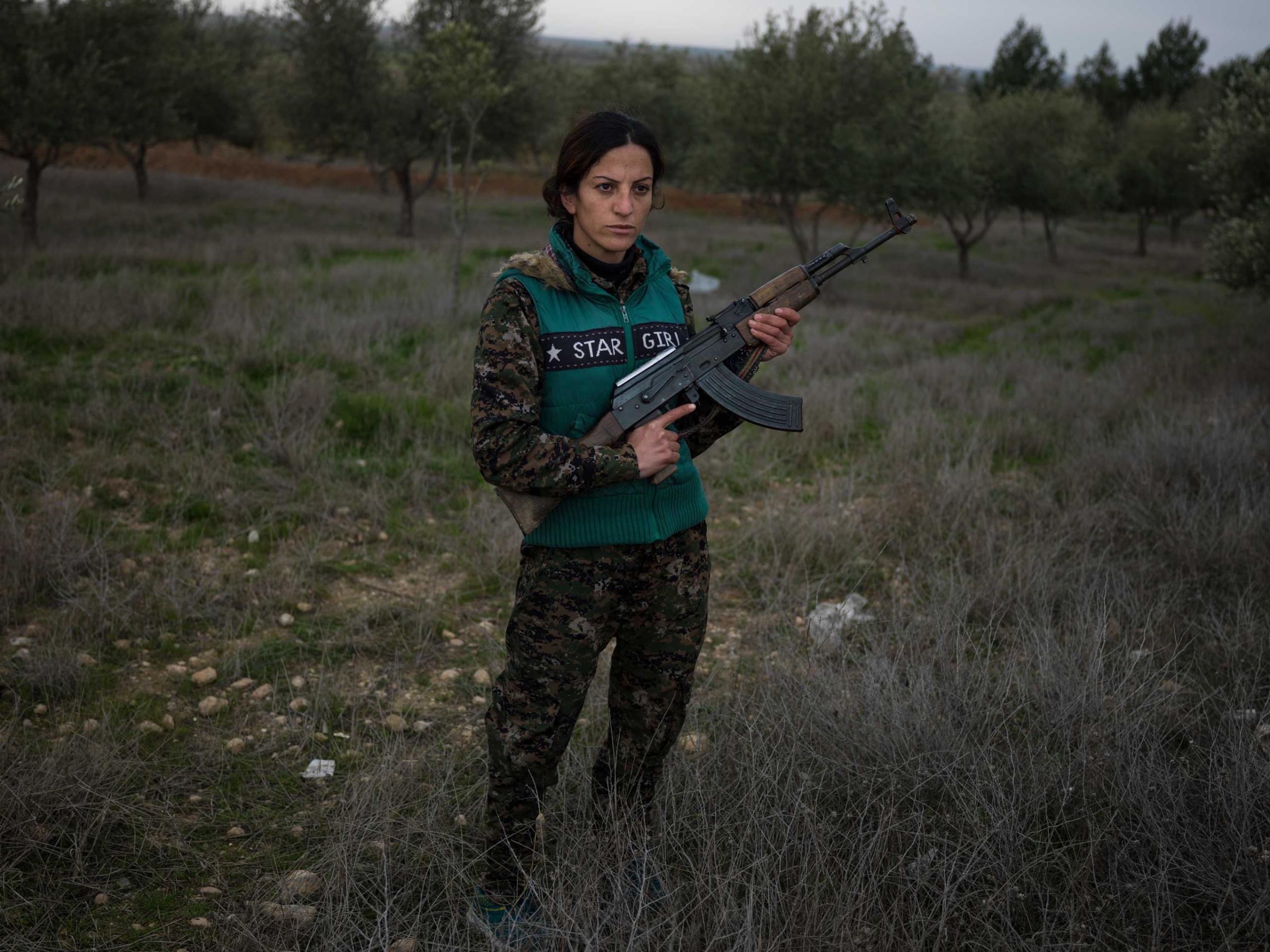
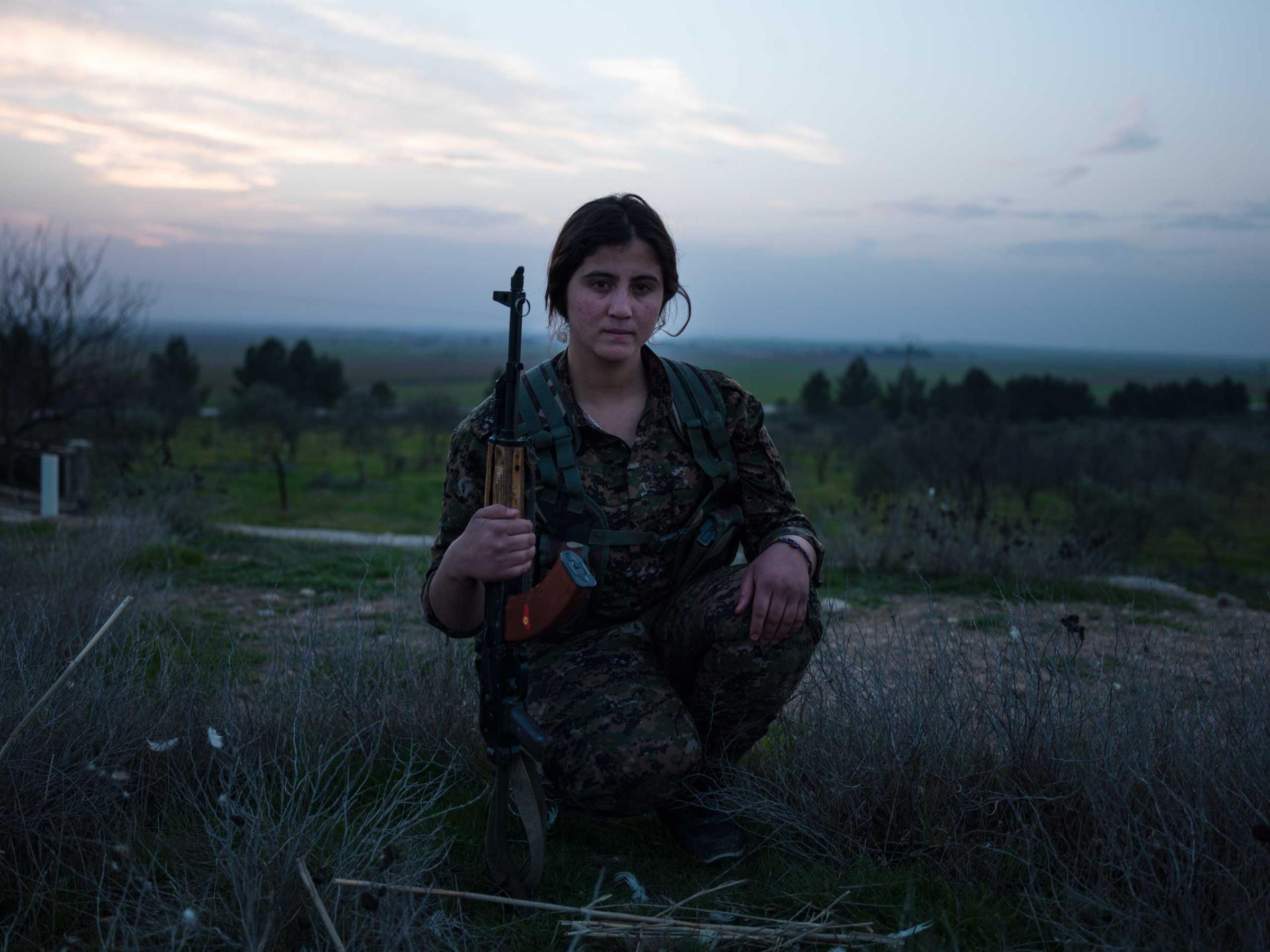
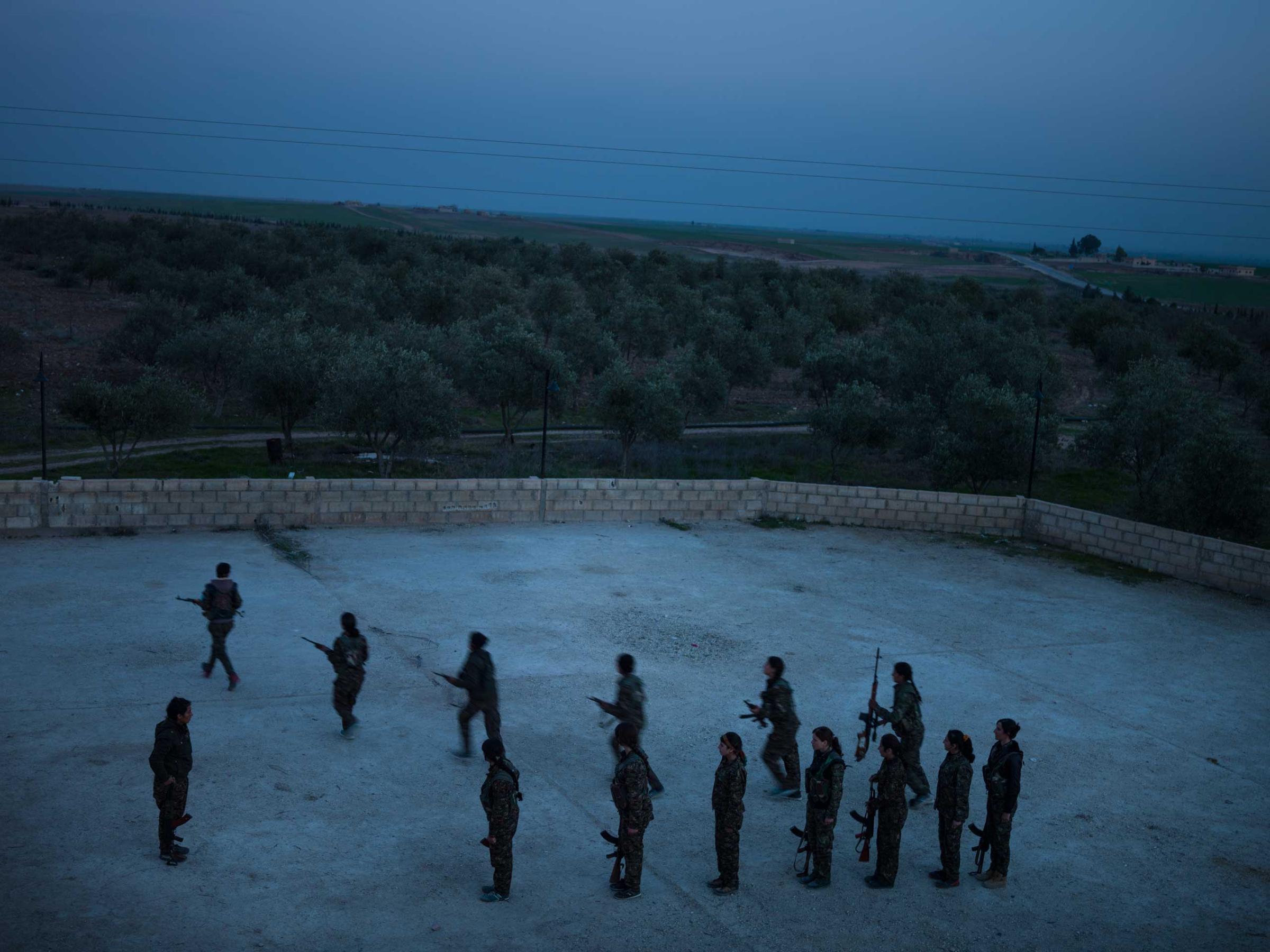
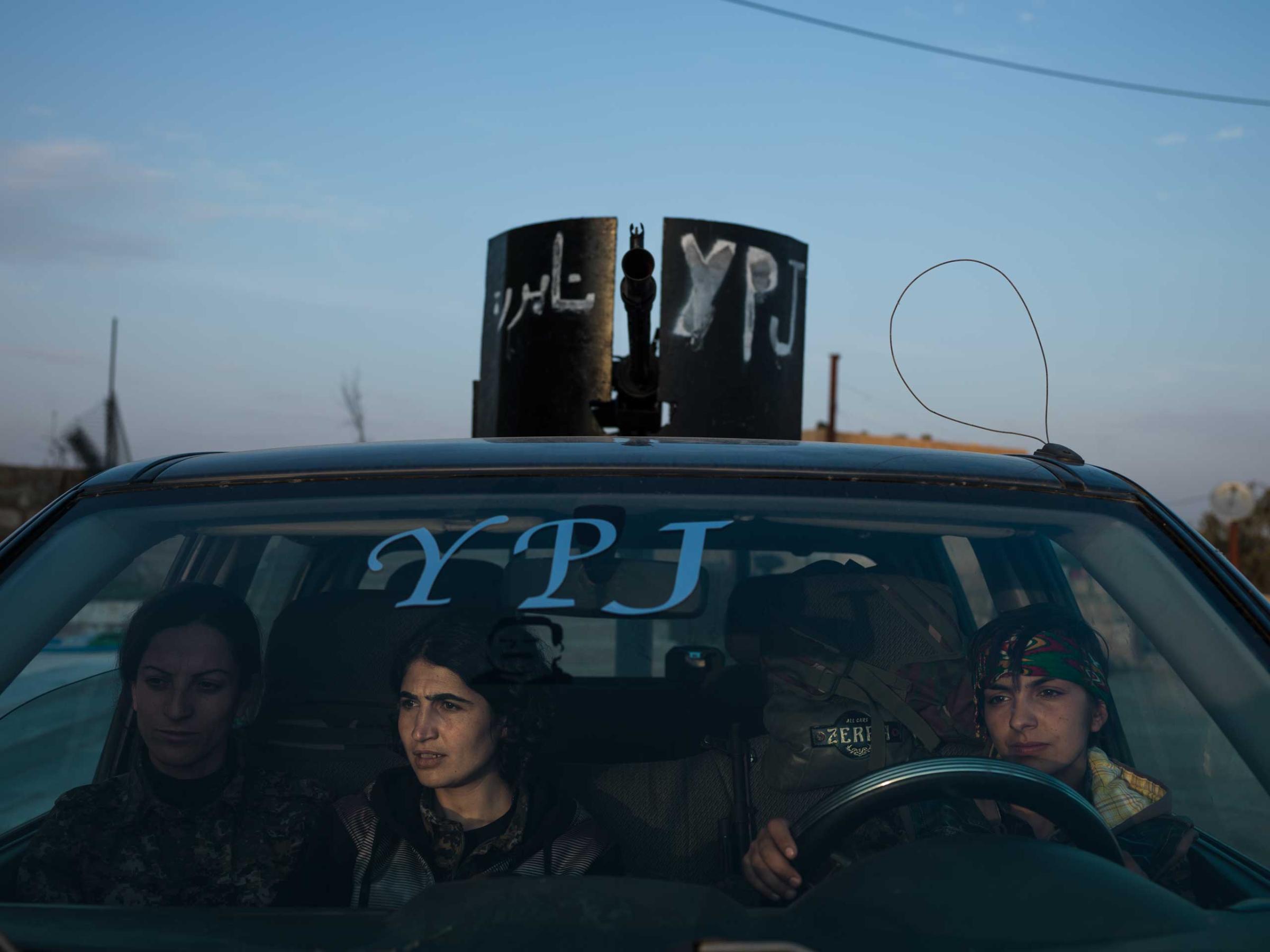
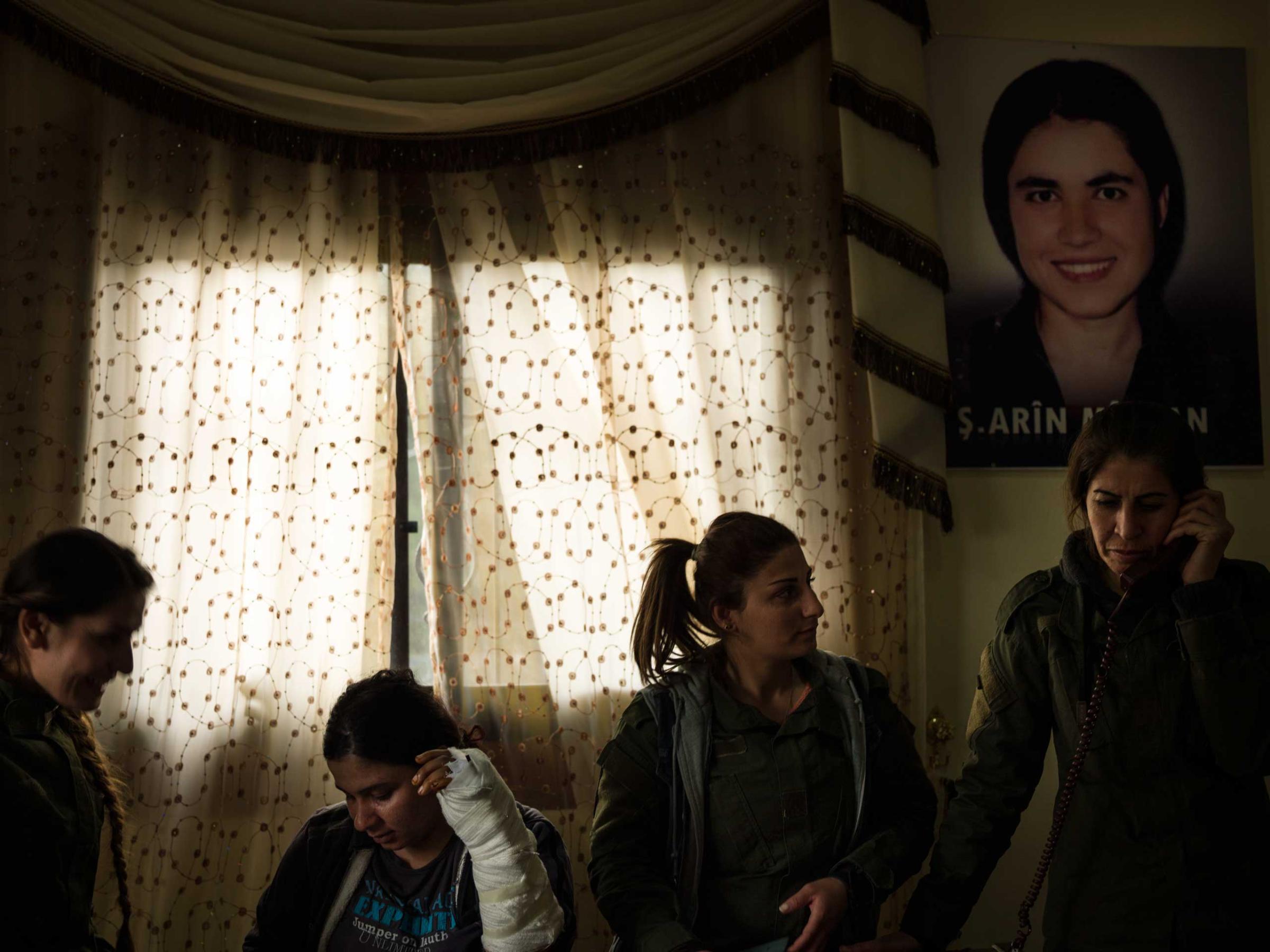
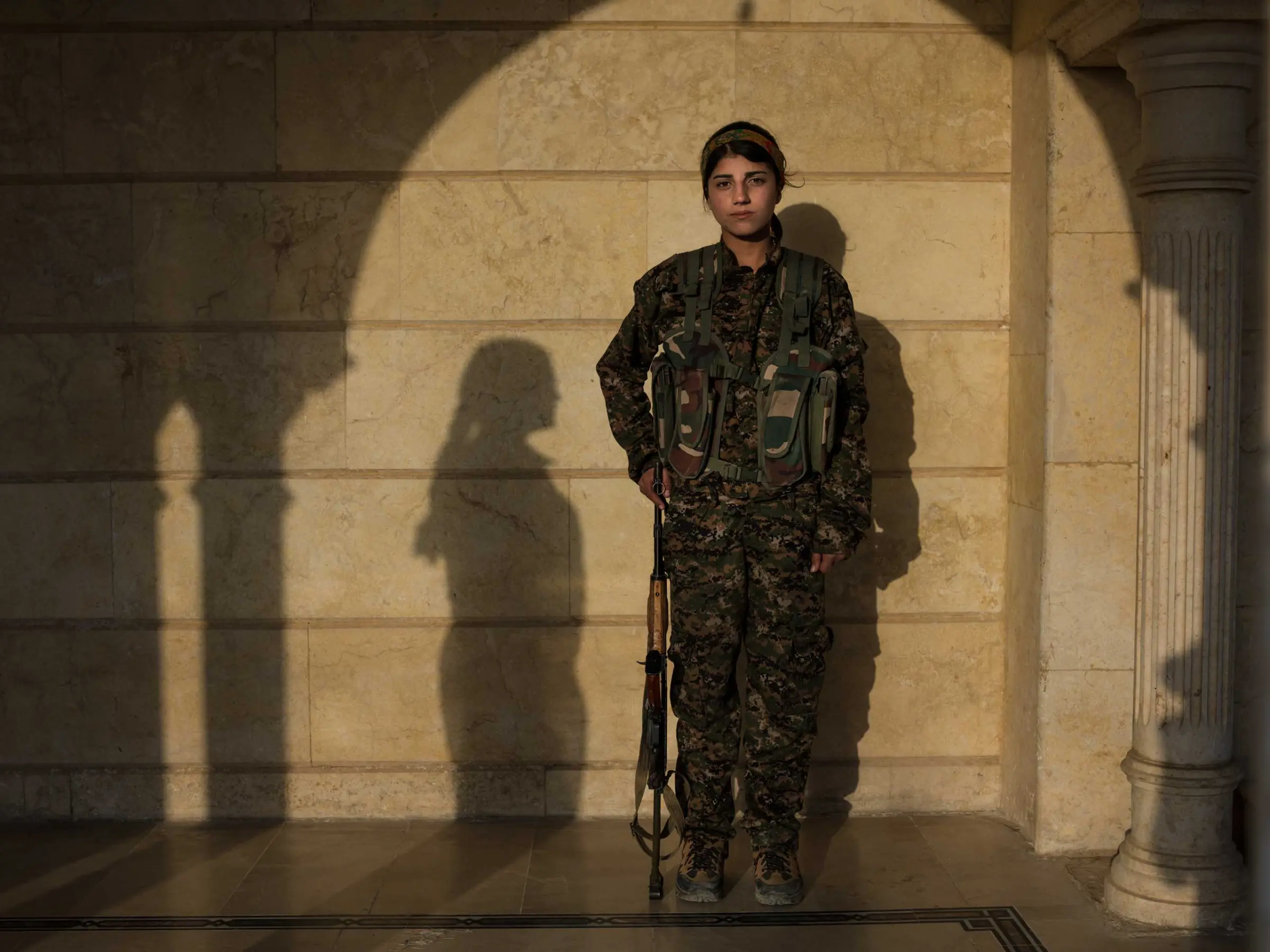
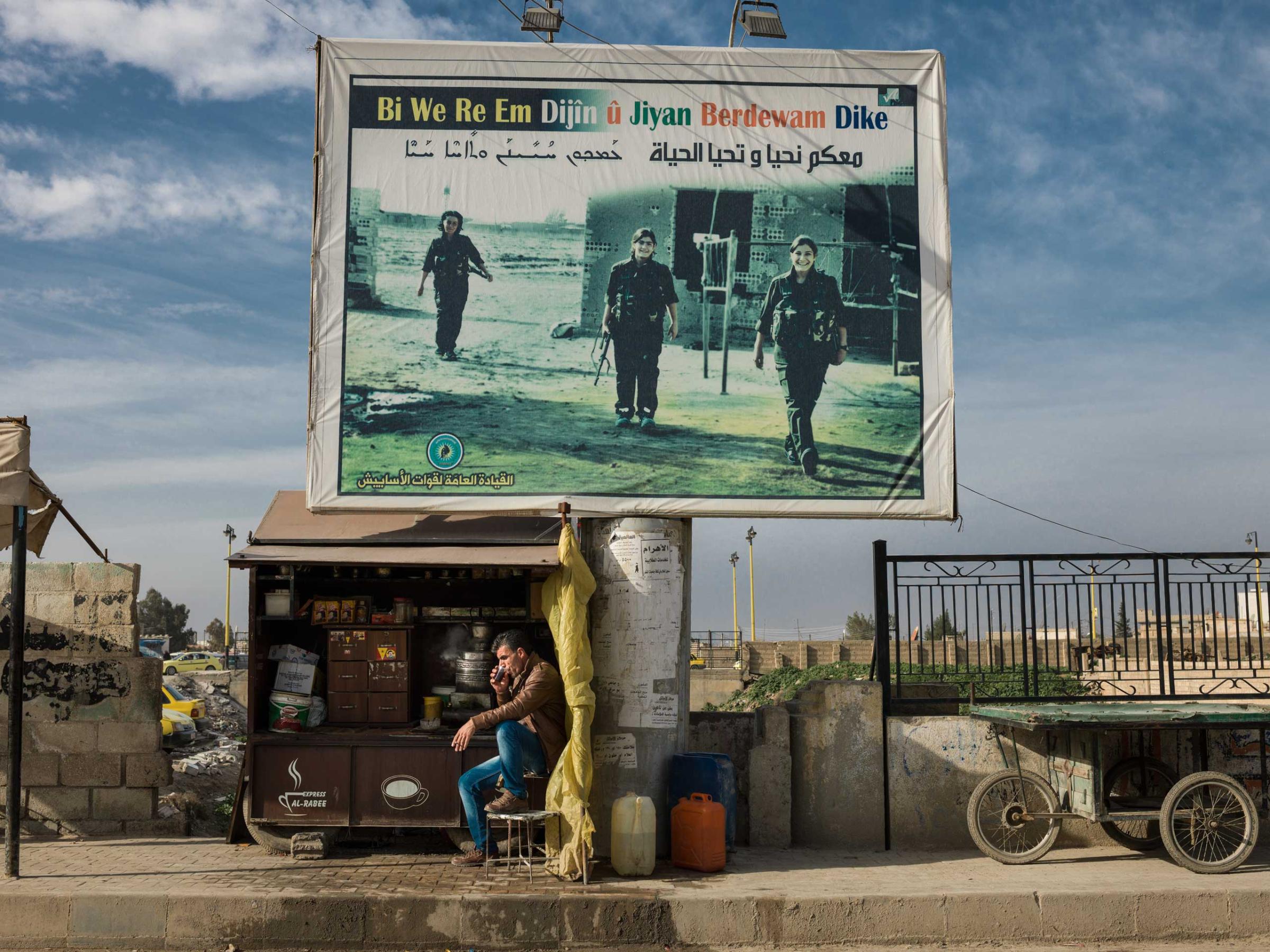
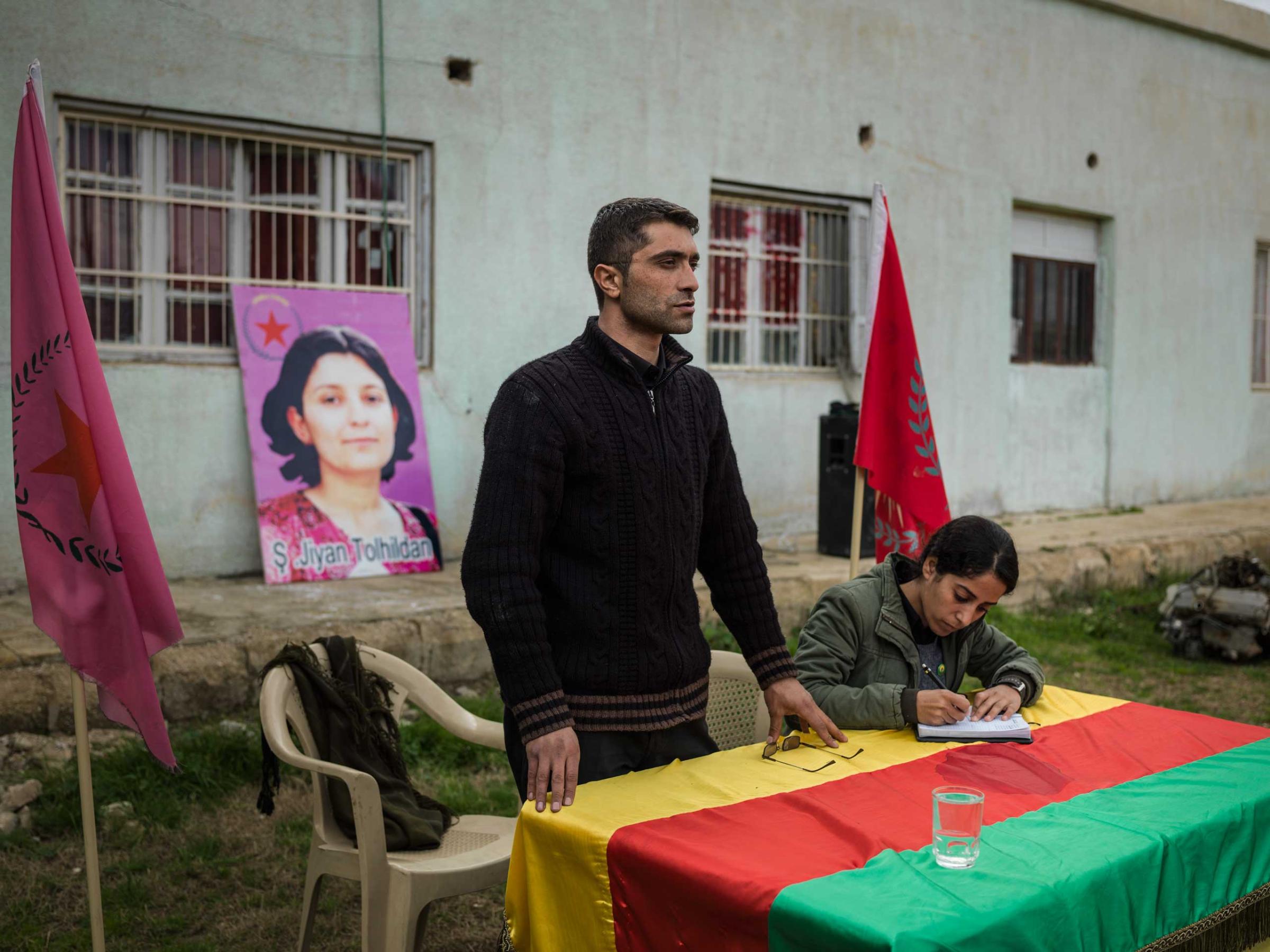
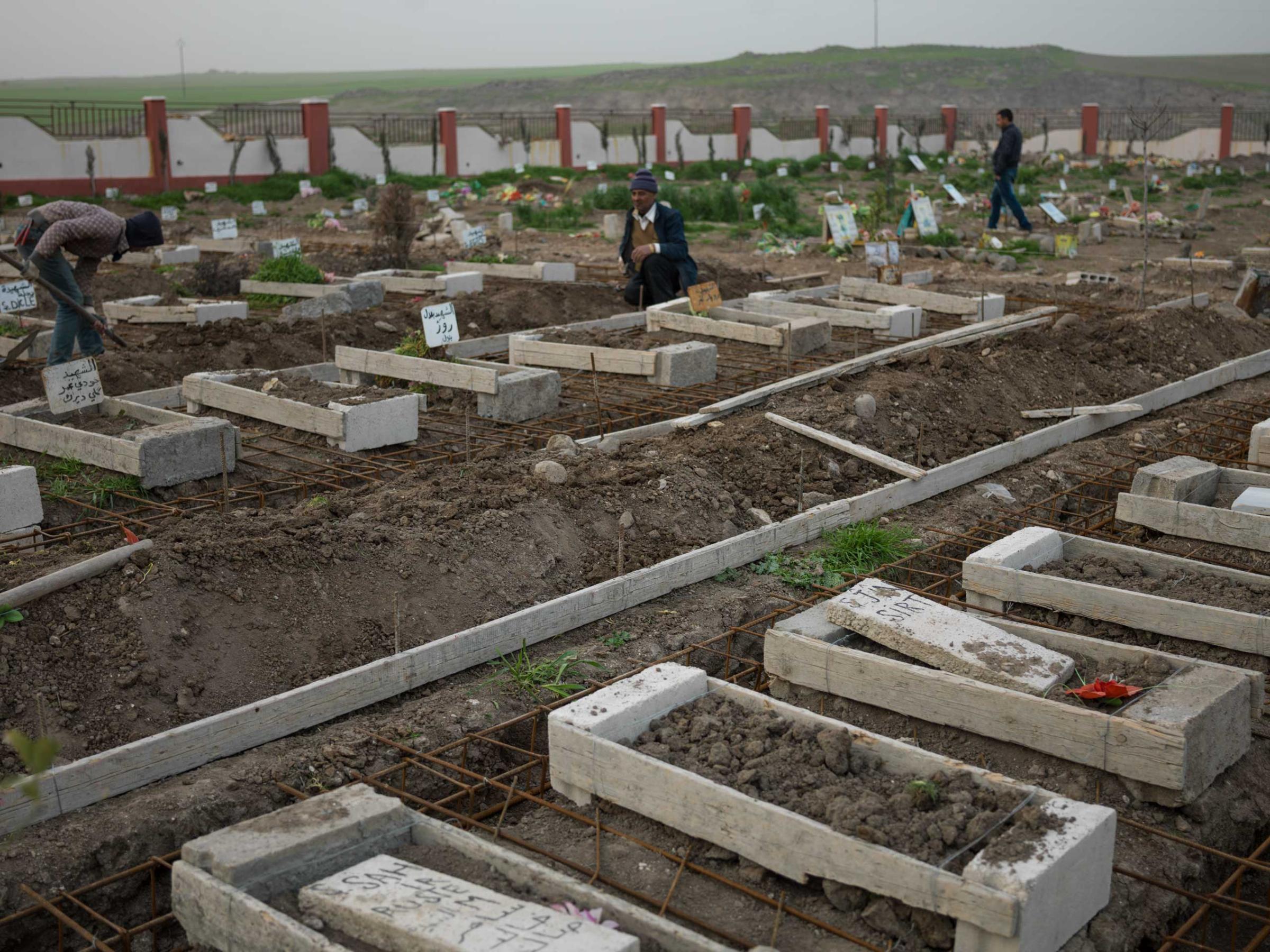
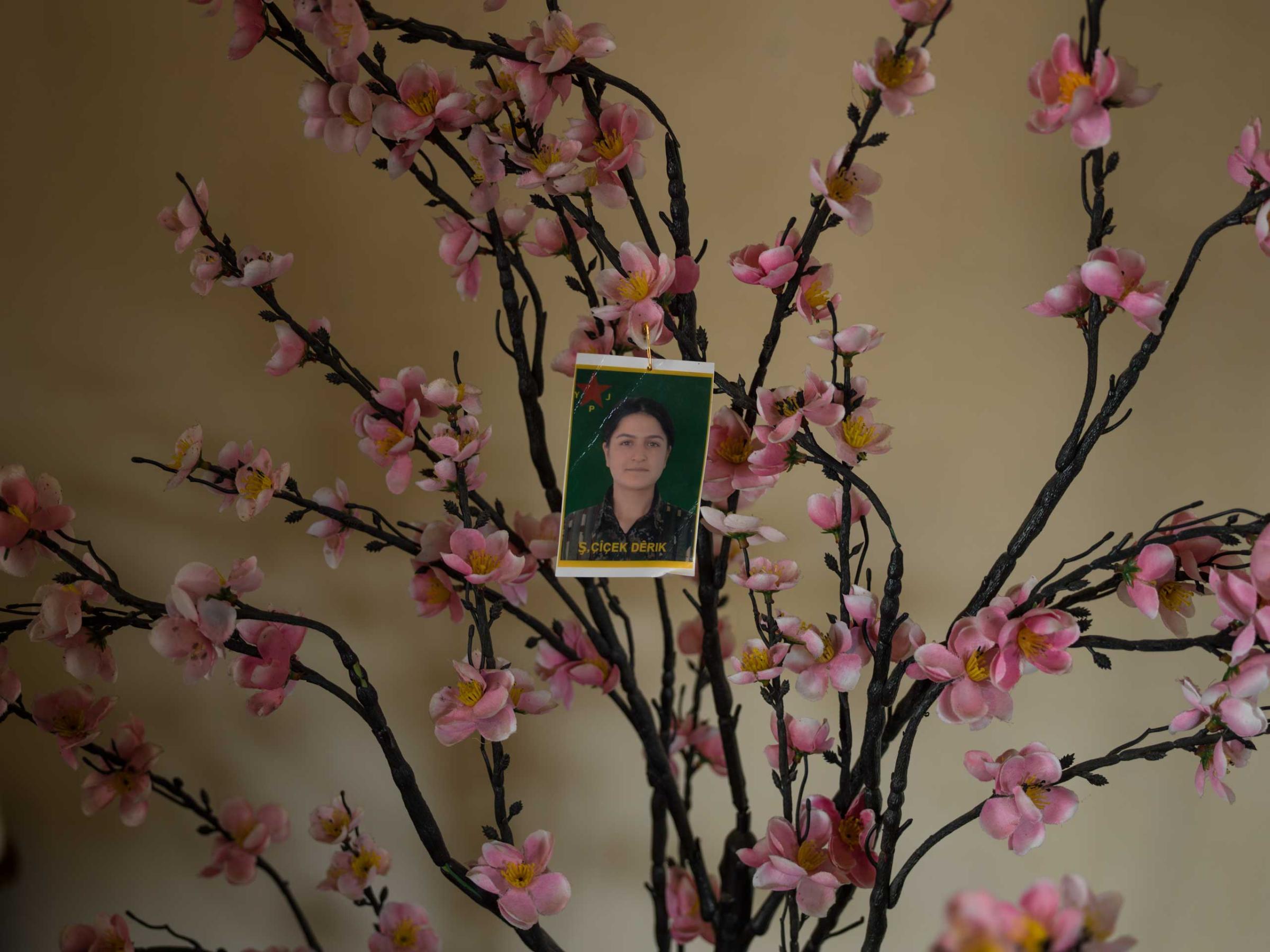
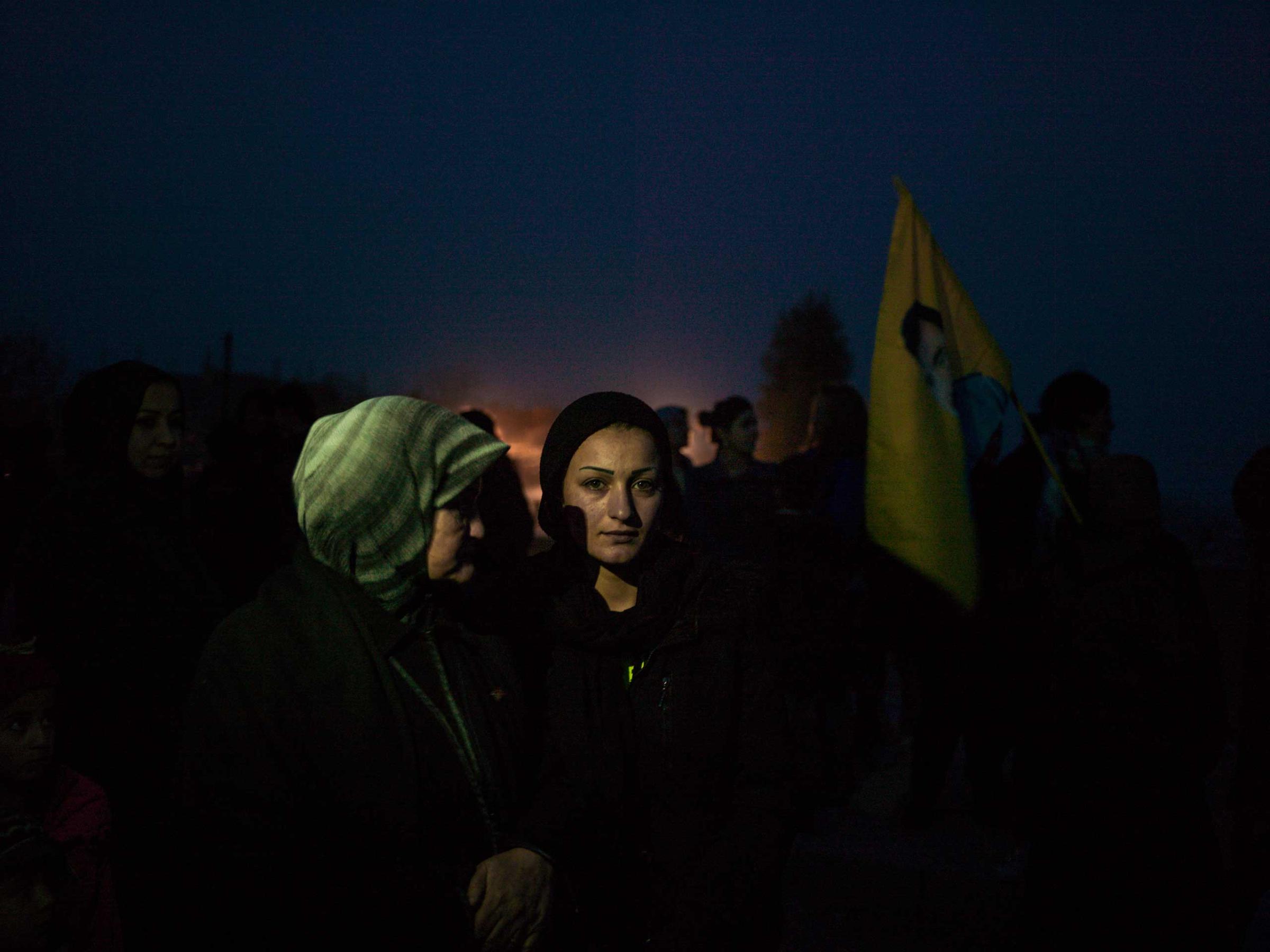
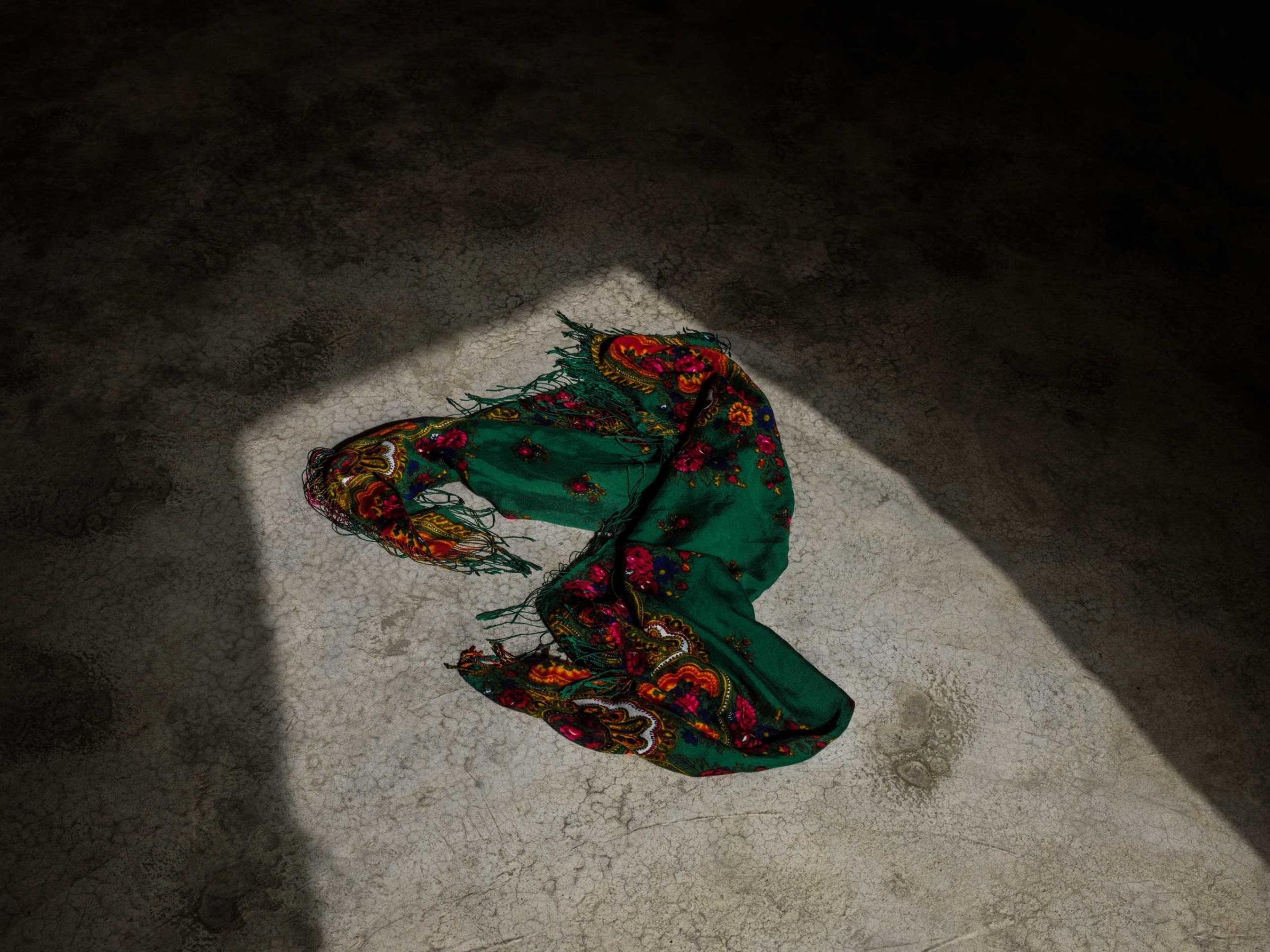
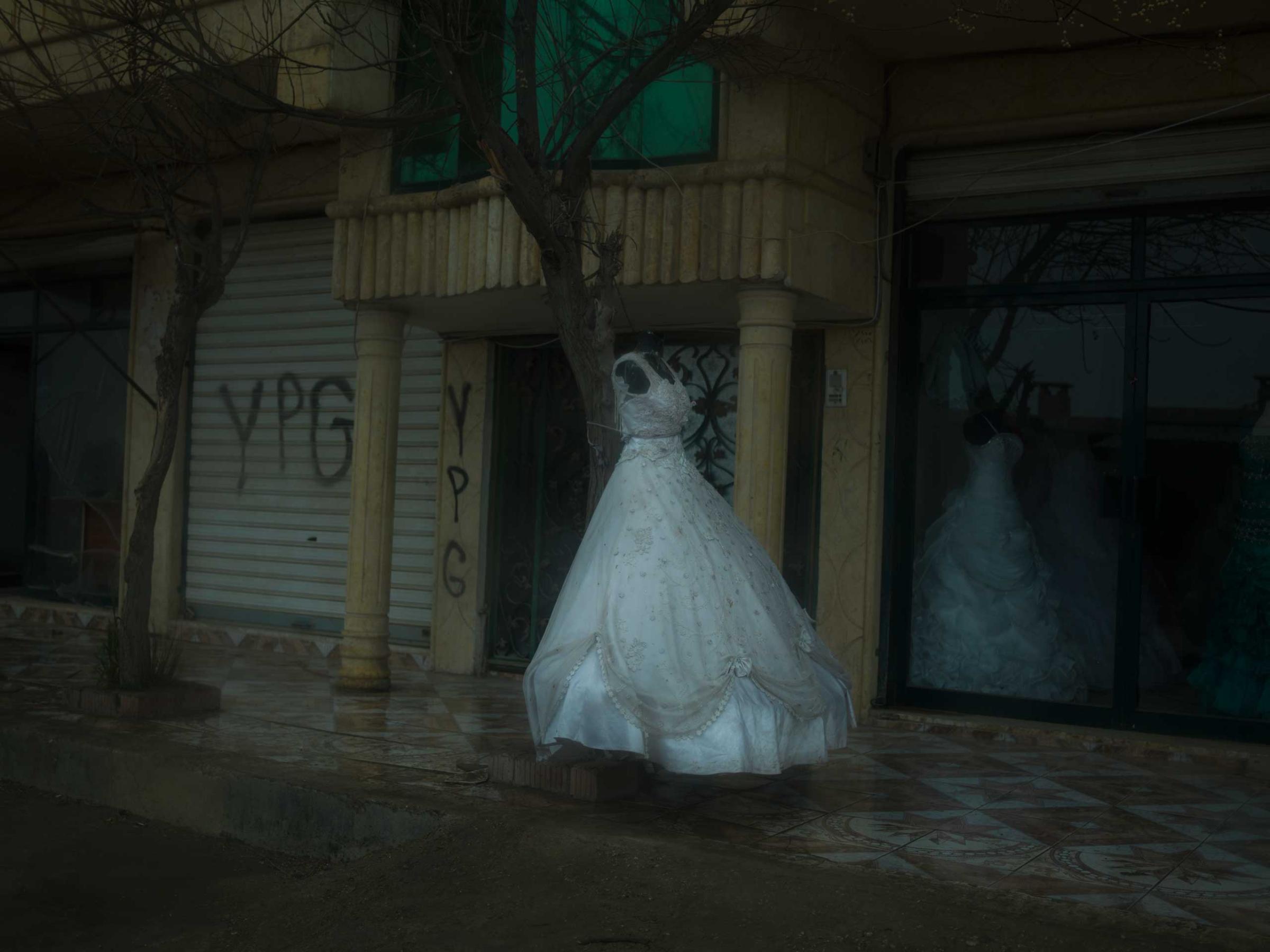
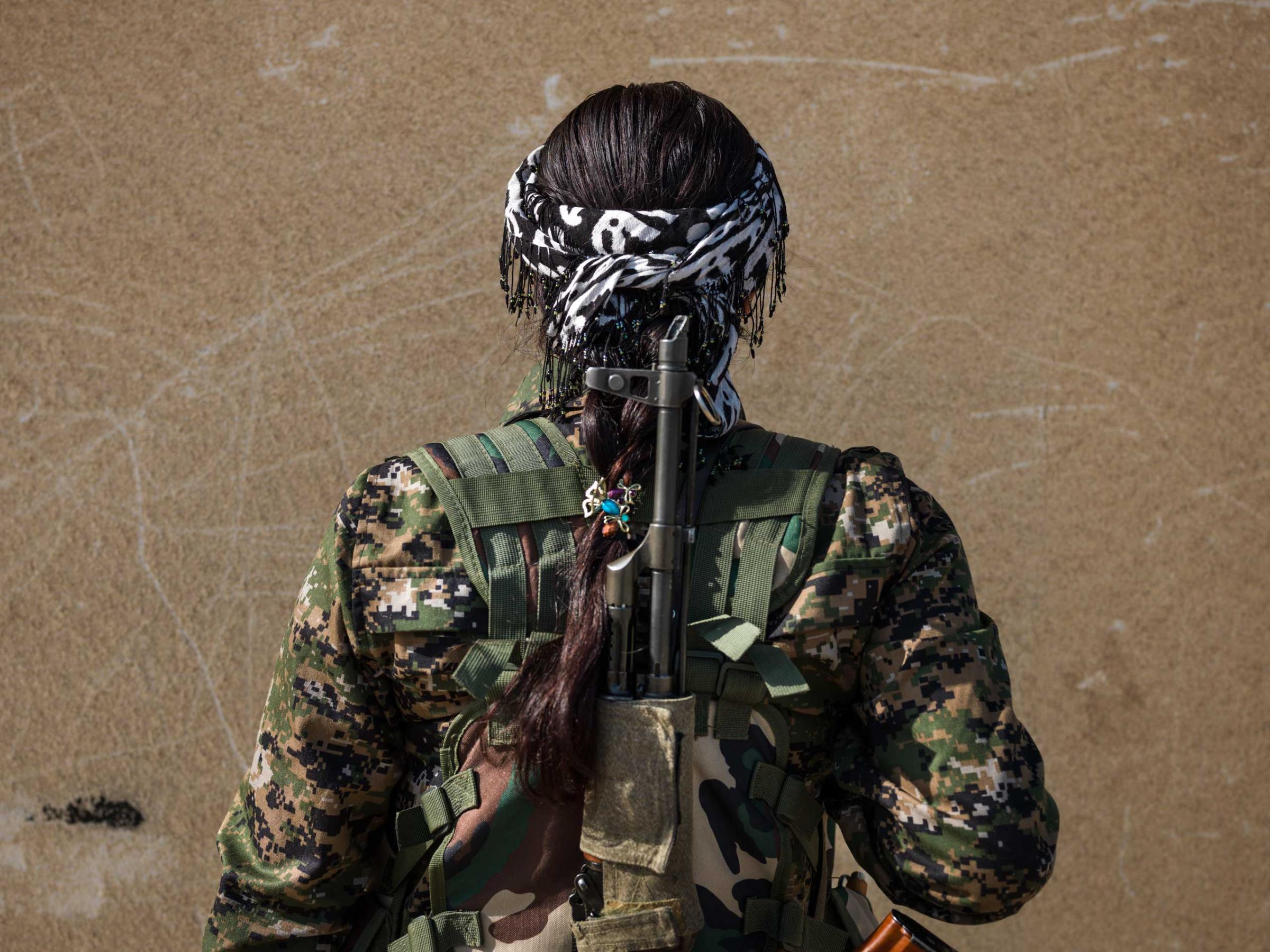
More Must-Reads from TIME
- Cybersecurity Experts Are Sounding the Alarm on DOGE
- Meet the 2025 Women of the Year
- The Harsh Truth About Disability Inclusion
- Why Do More Young Adults Have Cancer?
- Colman Domingo Leads With Radical Love
- How to Get Better at Doing Things Alone
- Michelle Zauner Stares Down the Darkness
Contact us at letters@time.com